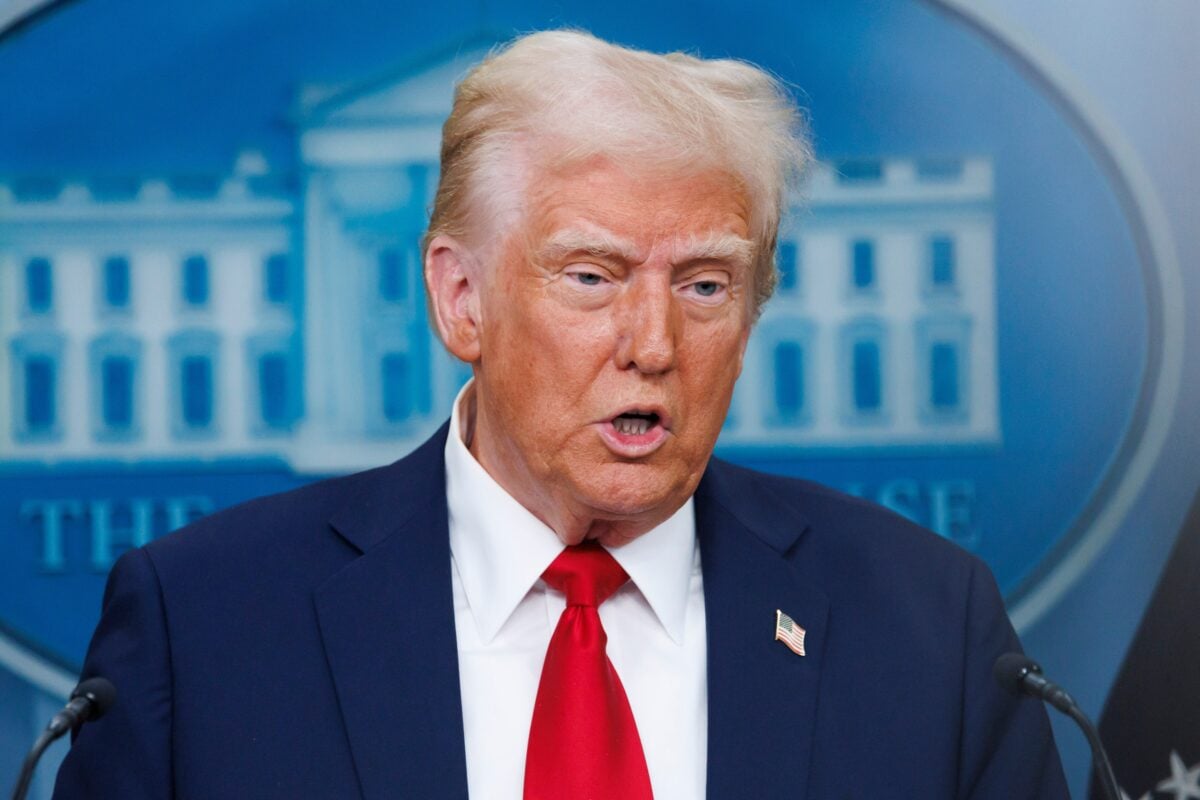TLDR
- Trump called on AG Pam Bondi to investigate Schiff, Comey, and James.
- Trump claimed he fired Erik Siebert for not charging Letitia James.
- DOJ prosecutor resigned after refusing to pursue a mortgage fraud case.
- Trump praised Bondi and named Lindsey Halligan as Siebert’s replacement.
President Donald Trump is urging the Department of Justice to prosecute several political opponents, calling for faster action against them. Over the weekend, Trump posted multiple statements demanding investigations into figures who have opposed him in the past. His comments have drawn criticism from Democratic lawmakers who warn that the justice system should not be used to target political enemies.
Trump Calls on Attorney General Pam Bondi for Action
President Trump directly addressed Attorney General Pam Bondi in a social media post on Saturday, asking her to investigate individuals he described as “guilty as hell.” These include former FBI Director James Comey, Democratic Senator Adam Schiff, and New York Attorney General Letitia James.
“We can’t delay any longer, it’s killing our reputation and credibility,” Trump wrote. He also claimed that many of his supporters were frustrated by a lack of progress, referencing over 30 public comments that echoed this view.
In a follow-up post, Trump praised Bondi, stating that she was “doing a great job.” He added that he believed she would be remembered as one of the best attorneys general in the country’s history.
Push to Remove Prosecutor After Refusal to Charge Letitia James
Trump also commented on the departure of federal prosecutor Erik Siebert, who stepped down on Friday. Trump claimed that Siebert had failed to act on allegations of mortgage fraud against Letitia James, who successfully led a civil fraud case against Trump in 2023.
Although reports indicated that Siebert had resigned, Trump stated, “I fired him, and there is a GREAT CASE.” The New York Times reported that Siebert told top Justice Department officials that there was not enough evidence to proceed with charges against James.
James denied the mortgage fraud allegations and described them as “baseless” and politically motivated. Trump, however, announced that he had nominated a replacement for Siebert and suggested that a new prosecutor was needed to “get things moving.”
Trump’s History of Challenging DOJ Independence
Trump’s recent remarks are part of a wider pattern dating back to his first term in office. He has often criticized the Justice Department for not pursuing cases against his opponents and has removed officials he viewed as disloyal.
During his presidency, Trump dismissed Attorney General Jeff Sessions after he recused himself from the Russia investigation. His second attorney general, William Barr, left the role after resisting Trump’s claims of widespread election fraud in 2020.
Trump has also taken actions against other officials, such as revoking the security clearances of James and Manhattan District Attorney Alvin Bragg, who brought criminal charges against him. He removed several attorneys involved in investigations led by Special Counsel Jack Smith and criticized law firms connected to probes into his conduct.
Election Campaign and Promises of Political Retribution
As part of his ongoing campaign, Trump has repeatedly promised to pursue legal action against those he views as political enemies. This includes current and former officials from both law enforcement and the judiciary.
He has publicly stated his intention to seek revenge for past investigations, including the impeachment proceedings led by Adam Schiff. In Saturday’s remarks, Trump reaffirmed his view that the Justice Department must act “fast.”
While some Republicans have remained silent on the issue, Democratic leaders have expressed concern. Senate Minority Leader Chuck Schumer said, “He’s turning [the DOJ] into an instrument that goes after his enemies, whether they’re guilty or not.”
The Department of Justice has traditionally operated with a degree of independence from the White House. However, Trump’s approach continues to raise questions about political pressure on federal law enforcement agencies.







